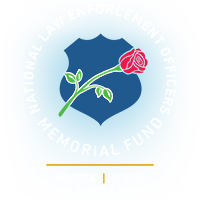“I [patroller’s name], do swear, that I will as searcher for guns, swords, and other weapons among the slaves in my district, faithfully, and as privately as I can, discharge the trust reposed in me as the law directs, to the best of my power. So help me, God.”
-Slave Patroller’s Oath, North Carolina, 1828.

When one thinks about policing in early America, there are a few images that may come to mind: A county sheriff enforcing a debt between neighbors, a constable serving an arrest warrant on horseback, or a lone night watchman carrying a lantern through his sleeping town. These organized practices were adapted to the colonies from England and formed the foundations of American law enforcement. However, there is another significant origin of American policing that we cannot forget—and that is slave patrols.
The American South relied almost exclusively on slave labor and white Southerners lived in near constant fear of slave rebellions disrupting this economic status quo. As a result, these patrols were one of the earliest and most prolific forms of early policing in the South. The responsibility of patrols was straightforward—to control the movements and behaviors of enslaved populations. According to historian Gary Potter, slave patrols served three main functions.
“(1) to chase down, apprehend, and return to their owners, runaway slaves; (2) to provide a form of organized terror to deter slave revolts; and, (3) to maintain a form of discipline for slave-workers who were subject to summary justice, outside the law.”[i]
Organized policing was one of the many types of social controls imposed on enslaved African Americans in the South. Physical and psychological violence took many forms, including an overseer’s brutal whip, the intentional breakup of families, deprivation of food and other necessities, and the private employment of slave catchers to track down runaways.
Slave patrols were no less violent in their control of African Americans; they beat and terrorized as well. Their distinction was that they were legally compelled to do so by local authorities. In this sense, it was considered a civic duty—one that in some areas could result in a fine if avoided. In others, patrollers received financial compensation for their work. Typically, slave patrol routines included enforcing curfews, checking travelers for a permission pass, catching those assembling without permission, and preventing any form of organized resistance. As historian Sally Hadden writes in her book, Slave Patrols: Law and Violence in Virginia and the Carolinas,
“The history of police work in the South grows out of this early fascination, by white patrollers, with what African American slaves were doing. Most law enforcement was, by definition, white patrolmen watching, catching, or beating black slaves.”[ii]
The process of how one became a patroller differed throughout the colonies. Some governments ordered local militias to select patrollers from their rosters of white men in the region within a certain age range. In many areas, patrols were made up of lower-class and wealthy landowning white men alike.[iii] Other areas pulled names from lists of local landowners. Interestingly, in 18th century South Carolina, landowning white women were included in the potential list of names. If they were called to duty, they were given the option to identify a male substitute to patrol in their place.[iv]
First formed in 1704 in South Carolina, patrols lasted over 150 years, only technically ending with the abolition of slavery during the Civil War. However, just because the patrols lost their lawful status did not mean that their influence died out in 1865. Hadden argues there are distinct parallels between the legal slave patrols before the war and extralegal terrorization tactics used by vigilante groups during Reconstruction, most notoriously, the Ku Klux Klan.[v]
After the Civil War, Southern police departments often carried over aspects of the patrols. These included systematic surveillance, the enforcement of curfews, and even notions of who could become a police officer. Though a small number of African Americans joined the police force in the South during Reconstruction, they met active resistance.
Though law enforcement looks very different today, the profession developed from practices implemented in the colonies.
[i] Gary Potter, The History of Policing in the United States, EKU School of Justice Studies. https://plsonline.eku.edu/sites/plsonline.eku.edu/files/the-history-of-policing-in-us.pdf
[ii] Hadden, Sally E. Slave Patrols: Law and Violence in Virginia and the Carolinas (Massachusetts: Harvard University Press, 2001), 4.
[iii] Hadden, 21
[iv] Hadden, 73.
[v] Hadden, 203.

